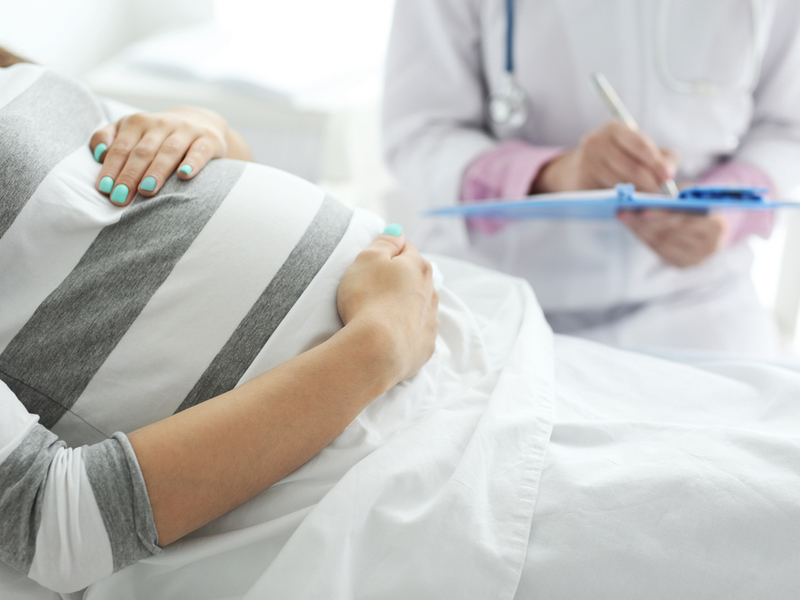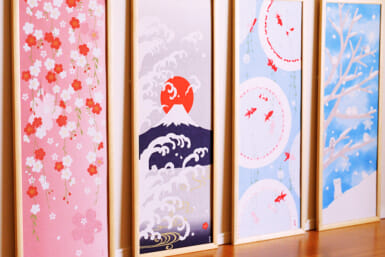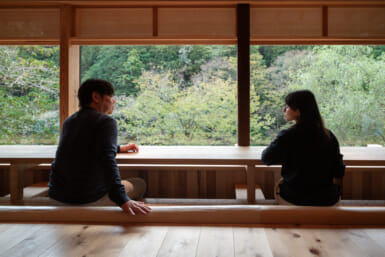On September 5, 2019, Mangayamma Yaramati, a 74-year-old woman in southern India gave birth to twin girls for the first time after conceiving through donor eggs. This case raised ethical concerns around the world and would be highly unlikely in Japan where there is no clear legal framework for egg donation. However, due to delayed marriage, careers, and other factors, the average age of first-time mothers in Japan is increasing.
In fact, Japan ranks third among countries with the oldest first-time mothers in the world according to a 2017 report by World Atlas. Due to a conservative working environment and inflexible working conditions, as well as education, the average age of first-time mothers in Japan is 30.3, just behind Australia (30.5) and Greece (31.20), and on par with South Korea and Italy.
Many foreign mothers in Japan, as well, have delayed childbirth for various reasons. American Angela Kanda*, a freelance translator living in Kitakyushu, declared that she and her husband put off having kids because, she says, “We both wanted to travel and focus on our marriage during our twenties. I was 28 when we married, and he was 33.” She later gave birth to her first child at the age of 35, and her second at 39.
Research has shown that children born to older mothers tend to be healthier and more socially adjusted than those born to younger mothers. This may be because older parents tend to be better educated and more concerned about prenatal vitamins and follow-ups with their physicians. A recent study in Denmark showed that older mothers tend to be more patient and less likely to yell at their children or give them harsh punishments.
Of course, there are some downsides to motherhood at an advanced age such as the risk of pre-eclampsia, diabetes and caesarean birth, and an increased probability of chromosomal disorders such as Down syndrome. Later-in-life mothers may also find themselves sandwiched between generations, caring for ageing parents and small children at the same time, which can be stressful and exhausting. In Japan, where grandparents typically care for small children, older mothers may find themselves without babysitters.
“I think people were trying to be helpful, but it got annoying having acquaintances constantly ‘warning’ me about Down syndrome or implying that maybe I shouldn’t have a child at this ‘late date.’”
Jane Ikeda*, an American university instructor living in Shizuoka, had her first child “just this side of 40.” Although medical professionals did not express concern about her age, other women sometimes felt compelled to comment. “I think people were trying to be helpful,” she says, “but it got annoying having acquaintances constantly ‘warning’ me about Down syndrome or implying that maybe I shouldn’t have a child at this ‘late date.’ Or asking why I waited so long and [telling me] I should have had a child earlier. Or asking a lot of personal questions about reproduction or in-vitro when I felt like ‘you don’t know me like that.’ I think sometimes women who can conceive easily assume that everyone can.”
On the plus side, Ikeda adds, “It was nice to have my own career and time together with my husband because it’s a fairly child-focused life now.”
American Nancy Baldwin also had a career before becoming a mother. She writes via email, “I remember walking into the Aoba-ku ward office in Yokohama on August 15, 1995 after just having confirmed my first pregnancy after two years of detoxing from my very stressful previous job as a marketing manager in the wines and spirits industry and going through some minor fertility treatments. It was an odd feeling knowing that that date marked 50 years after the end of World War II but looked at it as a good omen.”
“For both my first and second pregnancies, I was in my late thirties – 36 when my first son was born and nearly 39 when my second son was born. Since at the time it was considered close to ‘Korei Shussan’ I went through the blood test screenings and intensified ultrasound tests to determine if either of my children may have Down syndrome or other disorders. I had one of the most popular doctors in Tokyo at the time who was associated with Aiiku Hospital so I really felt well taken care of throughout the process, especially the first time when pregnancy was a brand new territory for me. I really enjoyed staying at the hospital the first time around, was pampered royally and the food was excellent.”
Unfortunately, her third pregnancy, an accident at the age of 47, ended in a miscarriage.
“I am glad that I had all of my pregnancy, childbirth and miscarriage experiences here in Japan, I really felt cared for and not rushed out of the hospital unlike in America where I hear that most go home after two days in a normal situation,” Baldwin writes.
“Previous pre-natal tests, such as amniocentesis, presented a risk for both mother and fetus”
Previous pre-natal tests, such as amniocentesis, presented a risk for both mother and fetus. However, the Non-Invasive Prenatal Test (NIPT), a simple blood test for the early identification of fetal chromosomal abnormalities provided by Verinata Health, Inc., a subsidiary of Illumina, Inc. (the world’s largest genetic sequencing company), has been in use since 2011.
After a simple blood draw, fetal material from the amniotic fluid that has leaked into the mother’s circulation is analyzed. NIPT testing has been available at clinics in Japan since 2013, including those with English-speaking staff. However, the ¥200,000 yen cost is not covered by insurance here.
According to Miyuki Watanabe, a spokesperson for Global Support, a company that helps to facilitate NIPT testing in Japan (and welcomes foreigners living here), over 80,000 Japanese women have received the test. Although it is safe and 99 percent accurate in detecting trisomy 21 (Down syndrome), the test is somewhat controversial in this country. The Japan Society of Obstetrics and Gynecology claims that easy testing encourages abortion. In some cases, unauthorized clinics have performed the test without providing recommended counseling.
“Watanabe stresses that prenatal testing is primarily intended to ensure the birth mother’s well-being”
Watanabe stresses that prenatal testing is primarily intended to ensure the birth mother’s well-being. “We want them to have a baby safely.” As she points out, some small maternity hospitals may not be equipped to deal with emergencies. In the event of potential complications, mothers “can move to a big hospital to have their baby.”
Thanks to medical advances and better maternal health, doctors no longer look askance at older first-time mothers.
One American mother in Japan relates that when she became pregnant with her second daughter at the age of 35, she was “a little worried” about being older and pregnant. However, “the doctor said 40 is the new 35.”
Kris Toryu, a Canadian language teacher in Shikoku, who gave birth to her first child at the age of 35, concurs. “In fact, my ob-gyn kept encouraging me to try for baby number three every time I went to see him. He only stopped when I hit 43 years old.”
*Not her real name
For more information about NIPT, go to www.nipt-jp.com
Sponsored Post









